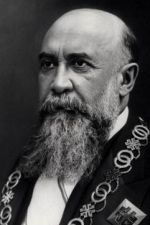In English language
The most sublime ideals are to be recognized by the fact that they do not have – cannot have – parasites.
Nicolae Iorga, translated by Andreea Florescu
The original in Romanian language
In German language
Die erhabensten Ideale erkennt man daran, dass ihnen keine Schmarotzer anhängen, ja anhängen können.
Nicolae Iorga, translated by Monica Stinghe
In French language
Les idéaux les plus sublimes, vous pouvez les reconnaître par le fait qu'ils n'en ont pas et ne peuvent pas avoir des parasites.
Nicolae Iorga, translated by Alex Bodoli
In Spanish language
Los más sublimes ideales se reconocen porque no tienen, ni van a tener, parásitos.
Nicolae Iorga, translated by Monica Fernandez
In Italian language
Il più sublime ideale è quello che non ha, e non avrà mai, parassiti.
Nicolae Iorga, translated by Eliza Biță







